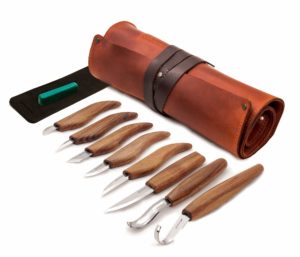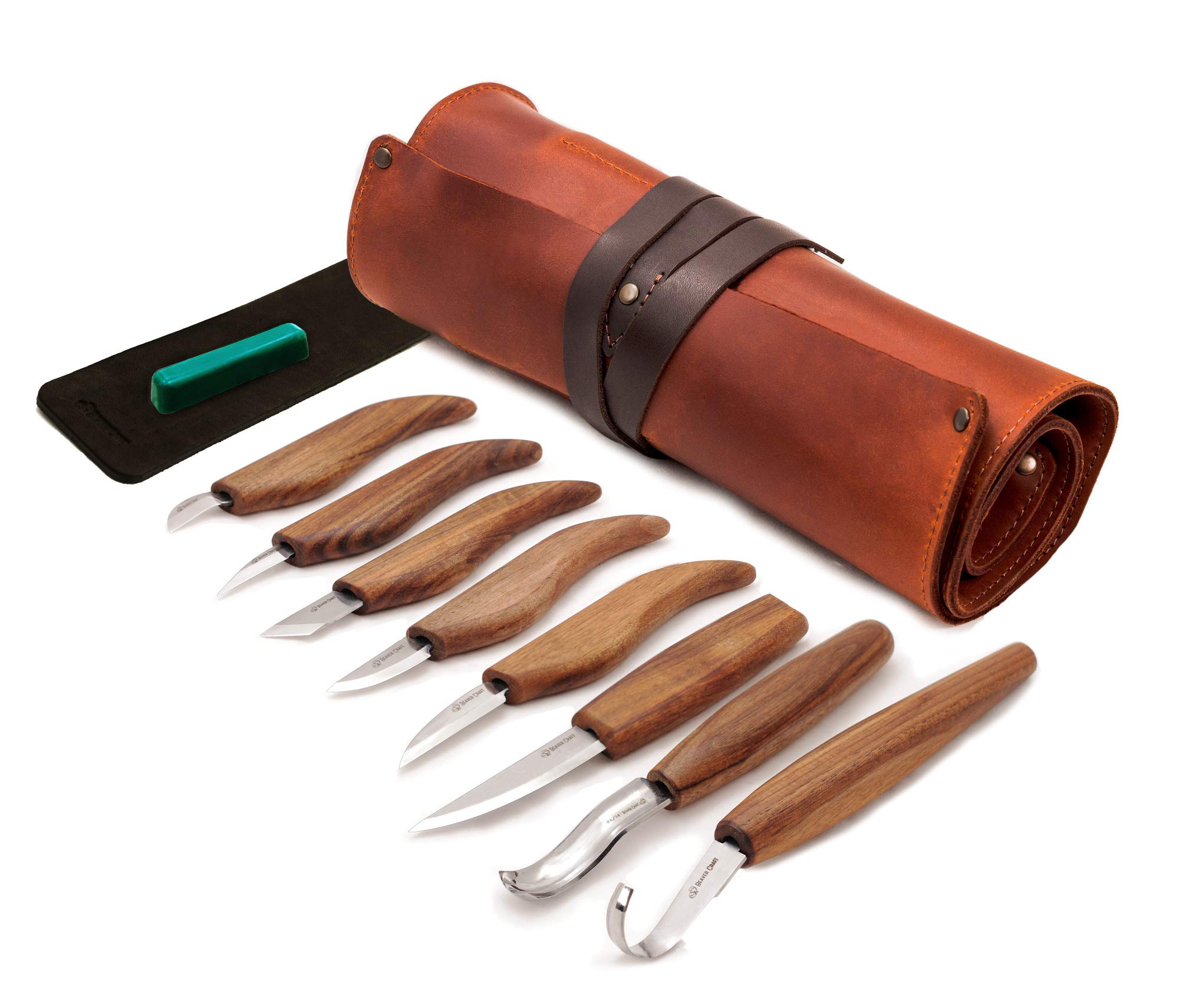Woodworking Knives: The Essential Tools
 Understanding the Basics
Understanding the Basics
Before we jump into the deep end, let’s start with the basics. What are woodworking knives, you might ask? Well, they’re specialized tools used for carving, shaping, and detailing wood. They come in different shapes and sizes, each designed for specific tasks.
Types of Woodworking Knives
1. Chip Carving Knife
This knife is your go-to tool for detail work. It has a short, pointed blade that’s perfect for intricate designs.
2. Bench Knife
With a long, straight edge, the bench knife is ideal for general-purpose carving and shaping. It’s a must-have in every woodworker’s toolkit.
3. Hook Knife
The unique curved blade of the hook knife makes it perfect for carving out hollows and rounded shapes. It’s a spoon carver’s best friend!
Choosing Your Woodworking Knives
With so many options available, picking the right knife might seem like finding a needle in a haystack. But don’t fret! Here are a few factors to consider when making your choice.
1. The Task at Hand
Think about what you’ll be using the knife for. Detail work? Get a chip carving knife. General carving? A bench knife should do the trick.
2. Quality of the Blade
The blade’s quality is crucial. Look for high-carbon steel blades – they’re durable, sharp, and perfect for woodworking.
3. Handle Comfort
Don’t underestimate the importance of a comfortable handle. It can make a world of difference in your woodworking experience.
Taking Care of Your Woodworking Knives
A well-maintained knife is a joy to work with. Here are a few tips on how to keep your woodworking knives in tip-top shape.
1. Regular Sharpening
Just like a dull pencil is no good for writing, a dull knife is no good for carving. Regular sharpening keeps your knives ready for action.
2. Cleaning
Clean your knives after each use to prevent rust and buildup. Warm water, mild soap, and a soft cloth should do the trick.
3. Proper Storage
Store your knives in a dry, clean place to keep them safe and sound. A knife roll or a dedicated drawer works wonders.
Safety First!
Remember, woodworking knives are sharp tools. Always handle them with care to avoid accidents. Always cut away from your body, and never use a dull knife – it’s more likely to slip and cause injury.
FAQs About Woodworking Knives
1. Can I use a kitchen knife for woodworking?
While it might be tempting, a kitchen knife isn’t suitable for woodworking. Woodworking knives are specifically designed for the task, ensuring better results and safer use.
2. How often should I sharpen my woodworking knives?
How often you sharpen your knife depends on usage. As a rule of thumb, if it’s not cutting as smoothly or if you’re having to apply more force, it’s time for a sharpening session.
3. What’s the best way to store my woodworking knives?
Storing them in a dry, clean place is key. A knife roll or a dedicated drawer is ideal. You can also use magnetic strips, but avoid throwing them in a drawer where they can get damaged.
4. Can I use woodworking knives on other materials like plastic or metal?
Woodworking knives are designed specifically for wood. Using them on harder materials like metal can damage the blade, so it’s best to stick to wood.
5. Is it necessary to clean my woodworking knives?
Absolutely! Cleaning your knives prevents the buildup of resin and other gunk that can dull the blade. Warm water, mild soap, and a soft cloth should do the trick.
6. What kind of wood is best for beginners?
Softwoods like pine or basswood are great for beginners. They’re easier to work with and perfect for honing your skills before moving on to hardwoods.
Conclusion
So there you have it, a deep dive into the world of woodworking knives. These trusty tools, with their variety and versatility, are the backbone of any woodworking project. Whether you’re just starting out or have been at it for years, understanding your tools and how to care for them can make a world of difference in your craft.
Remember, the key to mastering any craft is patience, practice, and the right tools. So, equip yourself with the best woodworking knives, roll up your sleeves, and let your creativity flow. Happy carving!

